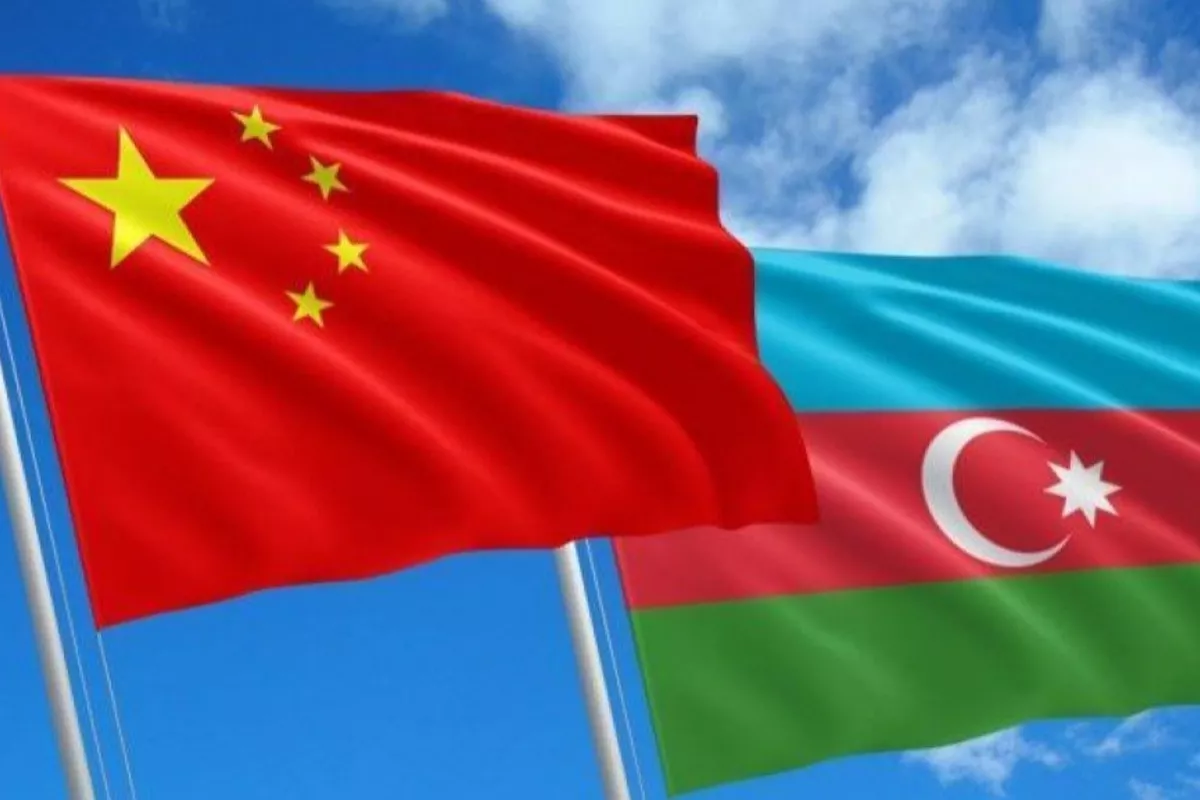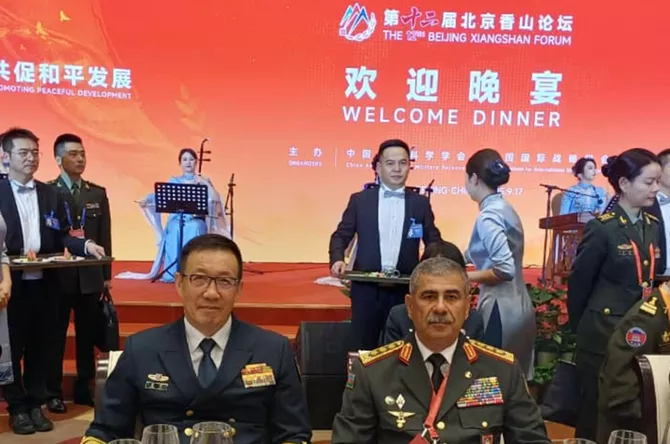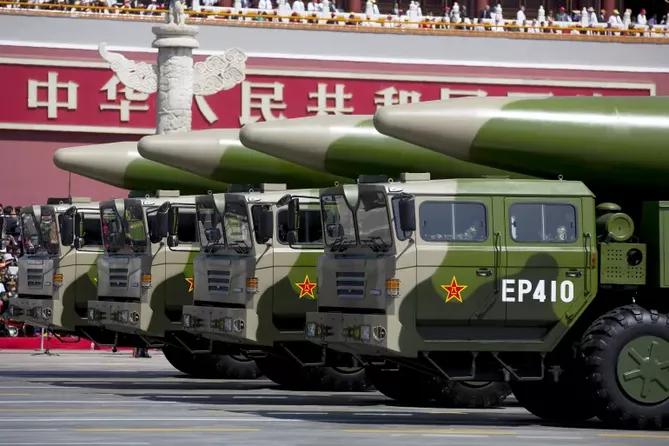
photo: Kazinform
Before our eyes, a new system of global security is taking shape - one in which traditional alliances are losing their monopoly on decision-making, while new centers of power are rapidly strengthening their positions. In this context, the Xiangshan Forum, currently underway in Beijing, is not merely a venue for discussing urgent challenges, but also a symbol of the profound transformations taking place in international politics.
Azerbaijan is represented at the forum by a delegation headed by Defense Minister Colonel-General Zakir Hasanov. This participation is no coincidence: Baku is demonstrating its readiness to actively engage in dialogue on regional and global security issues, seeking to expand its partnerships far beyond the traditional circle of allies. A key event of the forum was the meeting between the defense ministers of Azerbaijan and China, where concrete steps to deepen military cooperation were discussed.

Photo: AZERTAC
Held since 2006, the Xiangshan Forum has become one of the world’s most important platforms for discussing security issues, with a particular focus on the Asia-Pacific region. This year’s program includes four plenary sessions, eight parallel panels, high-level dialogues, seminars for young officers and scholars, and a series of briefings - a testament to the forum’s scale and significance. The participation of representatives from over 100 countries highlights China’s growing influence on the global security agenda.
Azerbaijan’s Strategic Pivot to the East
For Azerbaijan, strengthening ties with China in the defense sphere is not only a pragmatic decision but a deeply strategic move. The global system is fragmenting at an unprecedented pace: old models of cooperation are collapsing, while new mechanisms have yet to fully take shape. In this environment, relying on a single partner has become increasingly risky - especially when it comes to defense, where the supply of weapons and advanced technologies is directly linked to national security.
Türkiye remains Azerbaijan’s closest strategic ally, but its capacity to meet all of Baku’s modernization needs is naturally limited. European defense supplies are constrained by political conditions and sanctions, while the United States prefers to keep its distance from direct military-technical cooperation. Russia, which for decades was a primary supplier of weapons, now faces its own challenges due to sanctions and the need to focus its defense industry on domestic priorities.
Against this backdrop, China emerges as a nearly ideal partner for Azerbaijan. It offers cutting-edge technologies and a broad range of weaponry while maintaining a strict policy of non-interference. Unlike many Western powers, Beijing does not impose political or ideological demands. As analysts from the Kazakhstani outlet Altyn-orda note, China provides a unique combination: access to high-tech military solutions coupled with complete political autonomy.
From Dialogue to Practical Cooperation
Military cooperation between Baku and Beijing has already moved well beyond ceremonial meetings and declarations. In April of this year, President Ilham Aliyev, speaking at the international forum “Towards a New World Order” held in Baku, emphasized the importance of deepening ties with China in the defense industry:
“We have begun a dialogue on cooperation in the defense industry, and we believe this can become a very promising process, as Azerbaijan continues to modernize its armed forces,” the president stated.
An important milestone in bilateral relations came in 2024 with the signing of the Declaration on Strategic Partnership between Azerbaijan and China. This landmark document established a framework for comprehensive, long-term cooperation, explicitly including the field of defense and security.
Concrete steps followed swiftly. In February 2025, during the International Defense Exhibition (IDEX) in Abu Dhabi, an agreement was signed between Azerbaijan’s Azersilah company and the Chinese defense giant Norinco (China North Industries Group Corporation). Norinco is one of the world’s largest defense conglomerates, producing everything from tanks and armored vehicles to artillery systems, missile complexes, and electronic warfare equipment.
According to media reports, Baku and Beijing are now engaged in negotiations over the potential procurement of advanced Chinese weaponry, including unmanned aerial platforms, electronic warfare systems, and long-range rocket artillery. Equally significant are discussions about establishing joint defense production facilities in Azerbaijan, a move that would allow Baku not only to meet its own needs but also to position itself as a regional hub for the manufacturing and modernization of military hardware.

photo: The Washington Post
Azerbaijani delegations have paid multiple visits to China, holding talks with executives from leading defense corporations such as Poly Technologies and China Electronics Technology Corporation (CETC) International. These companies are global leaders in electronic defense technologies, producing radar systems, electronic warfare complexes, advanced communications systems, and public security infrastructure. Their expertise could play a pivotal role in modernizing Azerbaijan’s military capabilities and defense infrastructure.
Even if Baku has not publicly confirmed specific interest in certain Chinese weapon systems, indirect involvement is already visible. For example, Azerbaijan has ordered JF-17 Block III fighter jets from Pakistan - aircraft developed under a joint Pakistan-China program. This decision reflects Azerbaijan’s gradual integration into the broader defense technology network being shaped by Beijing.
Political Context and Strategic Vision
For Azerbaijan, closer cooperation with China carries profound political implications. By diversifying its defense partnerships, Baku is reinforcing its sovereignty and reducing vulnerability to external pressure. Unlike many Western states, China refrains from linking defense cooperation to political conditions, making it a highly reliable partner for countries seeking autonomy in their security policies.
From Beijing’s perspective, deepening ties with Azerbaijan serves a broader geopolitical strategy. The South Caucasus is a region of growing strategic importance for China’s Belt and Road Initiative, serving as a key transit corridor linking Asia to Europe. Strengthening military cooperation complements China’s investments in logistics, energy, and infrastructure, enabling it to secure its long-term interests in the region without directly interfering in local conflicts.
This non-interventionist approach is particularly valuable to Azerbaijan. In a region marked by complex rivalries and fragile balances of power, Baku needs partners who respect its independence and regional role. China’s policy of avoiding entanglement in disputes aligns perfectly with Azerbaijan’s multi-vector foreign policy, which prioritizes flexibility and balance.
Conclusion: A Vision for the Future
Azerbaijan-China defense cooperation is far more than a tactical move driven by immediate necessity. It represents a strategic choice - one aimed at building a diversified network of partnerships that will secure Azerbaijan’s long-term stability, independence, and resilience.
In an era when the global security system is under unprecedented strain, Baku is proving its ability to think ahead and act pragmatically. By forging ties with China, Azerbaijan is not simply acquiring weapons or technology; it is creating a new space for maneuver, free from the constraints of any single alliance.
China, for its part, sees Azerbaijan as more than a regional player - it views Baku as a key participant in its global vision. This partnership has the potential to become a model for how smaller states can assert themselves as active subjects, rather than passive objects, of international politics.
As Azerbaijan continues to modernize its armed forces and diversify its defense relationships, its collaboration with China may well become one of the cornerstones of a new security architecture - one that reflects the multipolar realities of the 21st century and ensures that nations like Azerbaijan shape, rather than merely adapt to, the future global order.
Share on social media